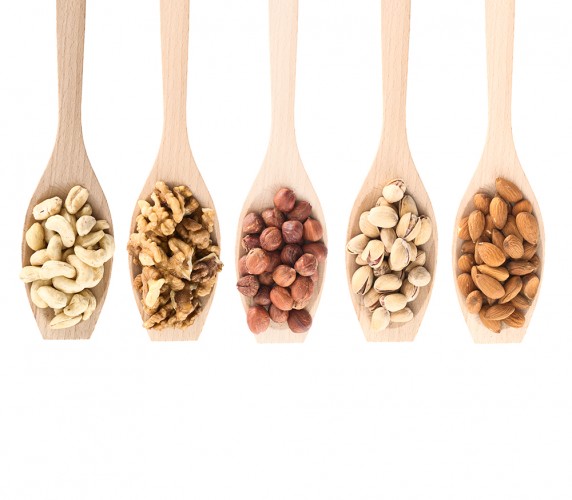Studies suggest that people who eat nuts such as almonds, walnuts, cashews and pistachios have reduced risk of heart disease, type 2 diabetes, and cancer. But did you know that nut consumption can reduce appetite and help maintain weight loss?
Nuts are a rich source of nutrients and are also fat and energy dense. However, eating modest amounts of nuts is not associated with weight gain. This paradox is largely attributable to the high satiety and low metabolizable energy (inefficient energy absorption) properties of nuts. Additionally, eating a small amount of nuts makes you feel full because they are high in protein and fiber, thus satiating your appetite. In other words, snackers are more satisfied after eating nuts than after eating foods of comparable caloric value, but that are also less nutrient dense.
One of the most common messages is that maintaining a healthy weight is simply a matter of balancing energy intake with energy output. However, this statement can be misleading because not all foods have the same biologically-available energy content. Nuts are a perfect example. The cell walls of nuts are resistant to microbial and enzymatic breakdown. Therefore much of the nut whose cell walls were not ruptured by chewing, passes through the gut without releasing the fats they contain. Therefore consumers cannot estimate energy intake simply by looking at information on a food label.
In conclusion, current thinking is that energy-dense foods must be carefully controlled for weight loss and maintenance. Although nuts are among the most energy-dense foods, their consumption has little impact on body weight. Because of their high nutrient and phytonutrient content, nuts should be a first choice for a healthy snack.




Comments (0)